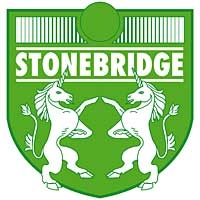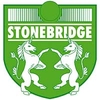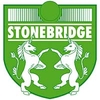-
Home
-
Contributors
-
International
-
Account
-
Information
More From Contributor

Teaching Assistant: CACHE Level 3 Award In Supporting Teaching &
Learning In Schools (QCF)
knowledge needed when working directly with children or young people in school environments. The Level 3 Award in Supporting Teaching & Learning in Schools is a knowledge based qualification and thus a school placement is not needed in order to successfully complete this course. Qualification Number: 500/9963/2 To gain the qualification learners will need to achieve 12 credits from the 4 units listed in the syllabus. Please note: Online access is required in order to complete this course. What Can I Do After Taking This Teaching Assistant Course? Become a teaching assistant. After successfully completing our CACHE Teaching Assistant Level 3 course, you could apply for a teaching assistant position within a school. Gain a promotion. If you are already working as
a teaching assistant, you may be eligible to work without supervision, for a promotion to Senior Teaching Assistant, Senior Learning Support Assistant or Senior Special Educational Needs Assistant, and for an increase in pay. Build your career. If you wish to increase your responsibilities and build your teaching assistant career even further, you could continue your training with further CACHE modules.
This page now acts as a permanent archive for this product. Add more information using the comments box below to ensure it can still be found by future generations.
Use our search facility to see if it is available from an alternative contributor.
- Availability: Out Of Stock
- Supplier: Stonebridge
- SKU: 793
Product Description
CACHE Teaching Assistant Course Level 3 This is a knowledge based qualification course. It is suitable for: Those who may not yet be employed within a school All support staff roles in schools, including school administrator, receptionist, library assistant, IT support worker, learning support assistant, teaching assistant, caretaker, lunch-time assistant Those who work directly with children & young people Those who require initial training or an induction to a new role About the Teaching Assistant Course The CACHE Level 3 Award in Supporting Teaching & Learning in Schools qualification course is an introduction to the role & responsibilities of teaching assistants. This teaching assistants’ course will provide learners with an understanding of the knowledge needed when working directly with children or young people in school environments. The Level 3 Award in Supporting Teaching & Learning in Schools is a knowledge based qualification & thus a school placement is not needed in order to successfully complete this course. Qualification Number: 500/9963/2 To gain the qualification learners will need to achieve 12 credits from the 4 units listed in the syllabus. Please note: Online access is required in order to complete this course. What Can I Do After Taking This Teaching Assistant Course? Become a teaching assistant. After successfully completing our CACHE Teaching Assistant Level 3 course, you could apply for a teaching assistant position within a school. Gain a promotion. If you are already working as a teaching assistant, you may be eligible to work without supervision, for a promotion to Senior Teaching Assistant, Senior Learning Support Assistant or Senior Special Educational Needs Assistant, & for an increase in pay. Build your career. If you wish to increase your responsibilities & build your teaching assistant career even further, you could continue your training with further CACHE modules.
Reviews/Comments
Add New
Intelligent Comparison
We couldn't find anything!
Perhaps this product's unique.... Or perhaps we are still looking for comparisons!
Click to bump this page and we'll hurry up.
Price History
We couldn't find any historical pricing!
Vouchers
Do you know a voucher code for this product or supplier? Add it to Insights for others to use.


 United Kingdom
United Kingdom
 France
France
 Germany
Germany
 Netherlands
Netherlands
 Sweden
Sweden
 USA
USA
 Italy
Italy
 Spain
Spain










 Denmark
Denmark